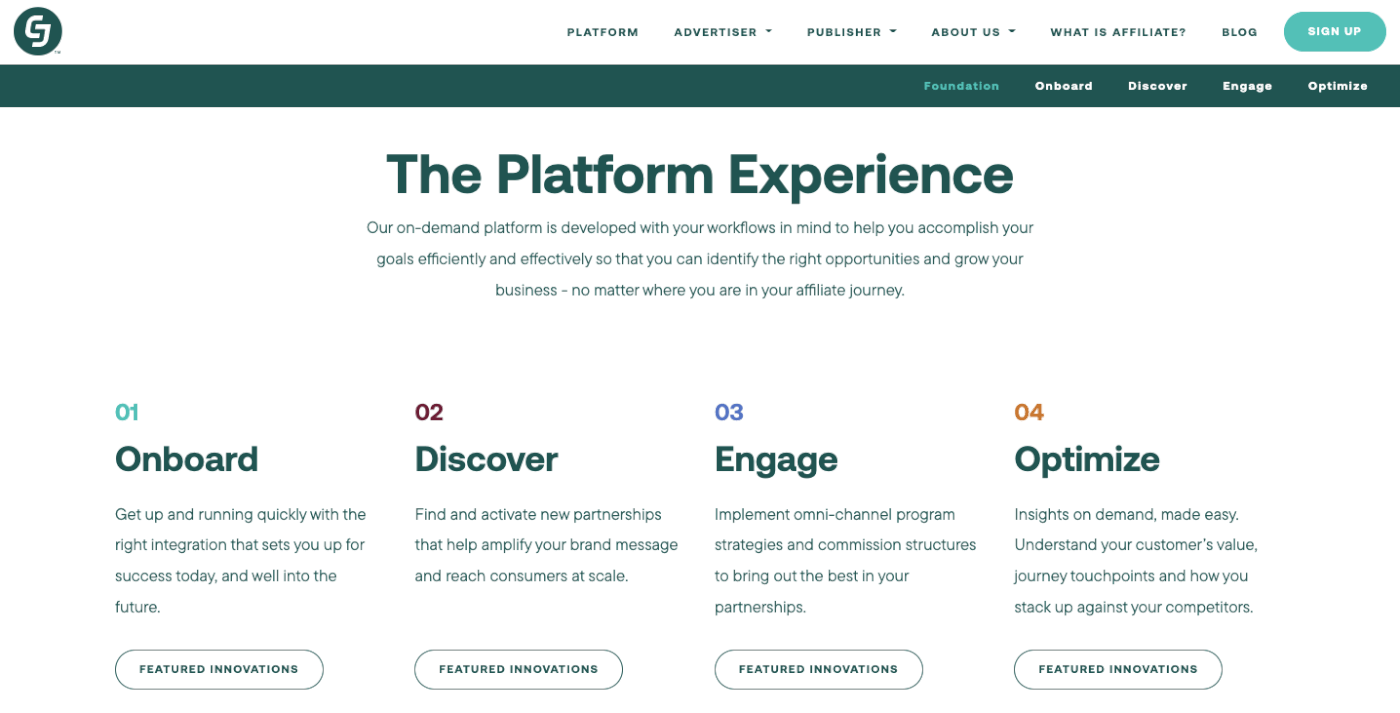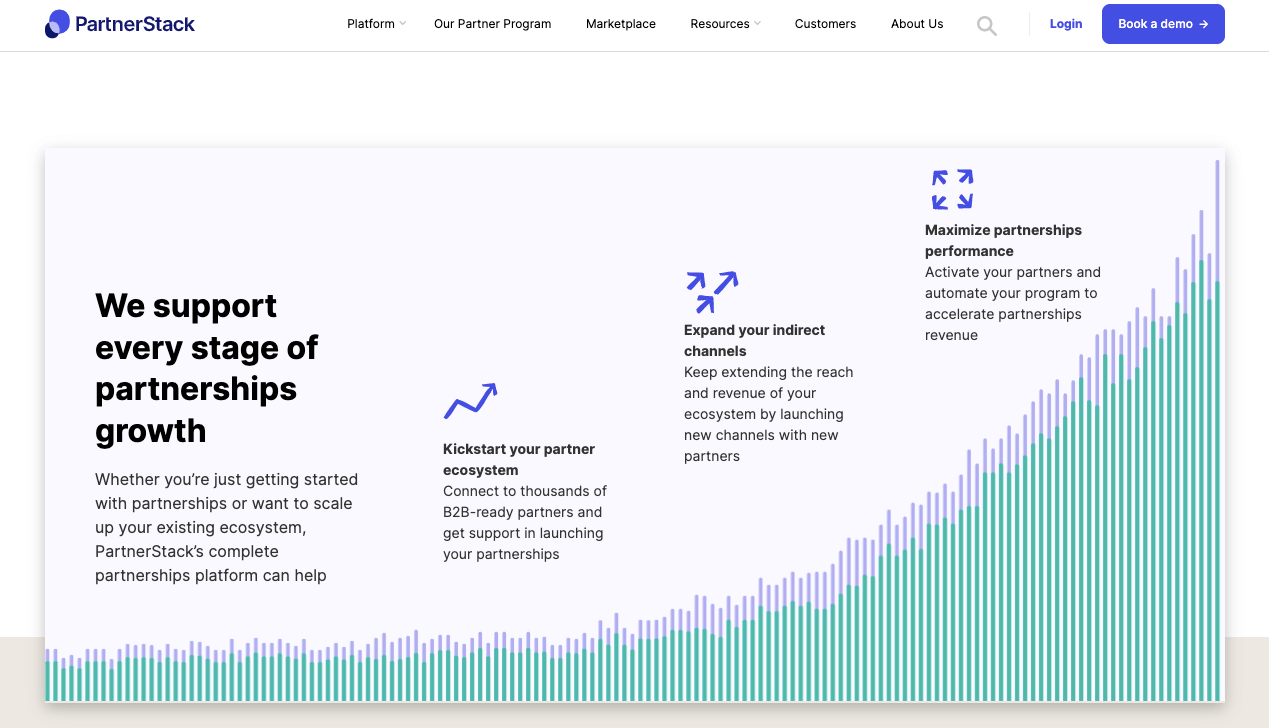Are you looking to earn money online by promoting products or services that you are passionate about? If so, this guide to affiliate marketing for beginners may be perfect for you!
What Is Affiliate Marketing?
Affiliate marketing is a type of performance based marketing in which affiliates promote the products or services of a business and earn a commission on each sale made through their marketing efforts. In most cases, affiliates use their own website, social media accounts, or other online channels to promote the products or services of a business.
When a customer clicks on an affiliate link and makes a purchase, the affiliate earns a commission on the sale.
This can be an effective way for businesses to reach new customers and for affiliates to earn money by promoting products or services that they are passionate about.
In this blog, we will delve into the world of affiliate marketing for beginners and provide a step-by-step guide to getting started as an affiliate marketer.
The affiliate marketing industry is a significant player in the e-commerce world, with an estimated worth of $17 billion. This industry plays a significant role in global e-commerce sales, with approximately 16% of all e-commerce sales happening through affiliates.
Let’s take a look at Shopify – one of the biggest e-commerce giants of today. The Shopify affiliate program is a way for individuals or businesses to earn commissions by promoting Shopify’s e-commerce platform and products.
As a Shopify affiliate, you can earn a commission for each customer you refer to Shopify who signs up for a paid plan. You can promote Shopify through a variety of methods, such as through a blog, social media, or email marketing.
Shopify provides affiliates with a range of resources, including banner ads, links, and tracking tools to help them promote the platform and track their progress. To join the Shopify affiliate program, you must apply and be accepted by Shopify. Once accepted, you can start promoting Shopify and earning commissions on your referrals.

Is affiliate marketing legit?
Affiliate marketing is just another business model. It’s completely legit as a way of exchanging value and a channel of driving sales.
It is important to note that affiliate marketing is more than just marketing. It involves building a business and partnering with other businesses to generate sales.
As an affiliate, you promote the products or services of another business and earn a commission on each sale that you help generate. In this way, affiliate marketing combines elements of both business development and marketing.
By partnering with other businesses and promoting their products or services, affiliates can build a profitable business and generate revenue through commissions.
Of course, the quality of the products and services you promote is important and it should be aligned to your value system.
How Does Affiliate Marketing Work?
The affiliate marketing business model is a performance-based model in which affiliates promote the products or services of a business and earn a commission on each sale made through their marketing efforts.
Here is a handy step-by-step breakdown of the process of affiliate marketing for beginners:
- A business creates an affiliate program and offers affiliates the opportunity to promote their products or services.
- Affiliates join the affiliate program and receive a unique affiliate link that they can use to promote the products or services of the business.
- Affiliates use their own website, social media accounts, or other online channels to promote the products or services of the business.
- When a customer clicks on an affiliate link and makes a purchase, the affiliate earns a commission on the sale. The commission amount is typically a percentage of the sale price and is agreed upon by the affiliate and the business.
- The business tracks the sales made through the affiliate links and pays the affiliates their commission on a regular basis, typically monthly.
Overall, the affiliate marketing business model allows affiliates to earn money by promoting products or services that they are passionate about, while also helping businesses reach new customers and increase their sales.
What Is An Affiliate Link?
An affiliate link is a unique URL that is used to track the sales made through an affiliate’s marketing efforts. The affiliate link is provided by the business that the affiliate is promoting and typically includes a unique identifier that allows the business to track the sales made through the link.
When a customer clicks on an affiliate link, they are directed to the website of the business that the affiliate is promoting. If the customer makes a purchase on the website, the sale is tracked through the affiliate link and the affiliate earns a commission on the sale.
Affiliate links are an important part of the affiliate marketing business model, as they allow affiliates to earn a commission on each sale made through their marketing efforts and allow businesses to track the sales made through the affiliates’ links.
Here is a step-by-step guide on affiliate marketing for beginners. This affiliate marketing roadmap will give you the insight you need to understand how to become an affiliate marketer:
Pick A Niche
Picking a niche is an important first step in the process of building an affiliate marketing business. A niche is a specific topic or area of focus that you will be targeting with your marketing efforts.
By choosing a niche that you are genuinely interested in instead of just one that is trending, you will be more motivated to create content and market your products, and you will also be able to provide value to your target audience.
There are many different niches that you can choose from, including fashion, lifestyle, travel, making money online, working from home, educational content, and online tools. It’s important to take the time to research and evaluate different niches to find one that you are passionate about and that has the potential to be profitable.
In the case of affiliate marketing for beginners, when choosing a niche, it’s also important to consider the size of the market and the competition. A niche that is too small may not have enough potential customers to sustain your business, while a niche that is too large may be too competitive. It’s important to find a balance between these two factors to ensure that you have a viable market to target with your marketing efforts.
Overall, picking a niche is an important decision that will shape the direction and focus of your affiliate marketing business. By choosing a niche that you are genuinely interested in and that has the potential to be profitable, you can set yourself up for success in the world of affiliate marketing.
Define Your Target Audience
When it comes to affiliate marketing for beginners, defining your target audience should definitely be the next step in building your affiliate marketing business. Your target audience is the group of people that you will be marketing your products to, and understanding their needs and interests is key to creating content and marketing strategies that will be effective.
To define your target audience, you need to understand who they are and what their needs and interests are. This can involve researching your niche and identifying the types of people who are most likely to be interested in the products and services you are promoting. You can gather this information through a variety of methods, such as market research, customer surveys, and analysis of existing data.
Once you have a good understanding of your target audience, you can start to create content and market your content in a way that will help you reach them. This might involve creating blog posts, videos, or social media posts that address common problems or challenges in your niche and offer solutions through the products or services you are promoting.
By helping your target audience solve problems in their niche, you can build trust and credibility with them and increase the chances of them purchasing products through your affiliate links.
Thus, defining your target audience, understanding them and creating content that addresses their needs and interests can increase your chances of making sales through your affiliate links.
Find The Products That You Want To Sell
In the realm of affiliate marketing for beginners, the importance of finding the products that you want to sell as an affiliate marketer cannot be overstated. There are many websites and platforms that offer affiliate programs, which allow you to earn commissions by promoting and selling products to your target audience.
If you are a beginner, some good places to start looking for products to sell include websites like ClickBank, Commission Junction, and Amazon. These websites offer a wide range of products in various niches, and they have established affiliate programs that you can join.

By joining these programs, you can browse the products available and choose ones that you think will be popular with your target audience.
When looking for products to sell, it’s important to consider the quality and reputation of the products, as well as the commission structure of the affiliate program.
You want to choose products that are well-reviewed and have a good reputation, as this will help you build trust with your target audience and increase the chances of them making a purchase through your affiliate links.
It’s also important to consider the commission structure, as this will determine how much you earn for each sale you make.
You can also check out ShareASale, which is an affiliate marketing network that connects merchants and affiliates. Merchants can create affiliate programs and offer affiliates the opportunity to promote their products or services, and affiliates can browse the available programs and choose the ones that align with their interests and audience.
ShareASale provides a range of tools and resources to help merchants and affiliates succeed in affiliate marketing, including tracking and reporting features, training and support, and various marketing materials. By using ShareASale, merchants and affiliates can effectively promote products or services and earn money through the affiliate marketing business model.
PartnerStack is another great option for businesses and affiliate marketers. It is a software platform that helps businesses automate and scale their affiliate marketing programs. It provides a range of tools and features to help businesses recruit, manage, and pay affiliates, as well as track and optimize their affiliate marketing efforts.
Some of the features offered by PartnerStack include customizable sign-up forms, automated affiliate onboarding, real-time tracking and reporting, and integrations with popular payment gateways and e-commerce platforms. PartnerStack also offers a range of resources and support to help businesses succeed in affiliate marketing, including training, support, and marketing materials.
By using PartnerStack, businesses can streamline and automate their affiliate marketing programs and scale their efforts to reach a wider audience and drive more sales. PartnerStack is aimed at businesses of all sizes, from small startups to large enterprises, and can help businesses of any industry effectively promote their products or services through affiliates.

Thus, by choosing high-quality products and joining established affiliate programs, you can set yourself up for success and start earning commissions on your sales.
Showcase Your Products
By creating a platform to showcase your products, you can reach your target audience and make it easy for them to learn about the products you are promoting and make a purchase.
One way to showcase your products is by setting up an affiliate marketing website. This can be a standalone website or a section of an existing website, and it should be designed to highlight the products you are promoting and make it easy for your target audience to learn more about them and make a purchase.
When it comes to affiliate marketing for beginners, to create an effective affiliate marketing website, you should start by creating content that highlights the features and benefits of the products you are promoting. This can be done through a variety of channels, such as a blog, YouTube channel, or social media accounts. By creating informative and engaging content, you can attract your target audience and make it easy for them to learn more about the products you are promoting.
In addition to creating content, it’s also important to make it easy for your audience to purchase the products you are promoting. This can be done by including your affiliate links in your content and making it easy for your audience to access them. You can also consider adding features to your website, such as product reviews and recommendations, to help your audience make informed purchasing decisions.
By creating a platform to showcase your products and creating engaging content, you can reach your target audience and make it easy for them to learn about and purchase the products you are promoting.
Enjoying this guide to affiliate marketing for beginners? Check out: The Ultimate Guide To ECommerce Marketing!
Marketing
Marketing is an important part of building a successful affiliate marketing business. It’s important to get attention for your content and make it easy for your target audience to understand the options you are offering in order to drive them to your affiliate links and affiliate marketing website and make sales.
There are many different tactics you can use to get attention for your content and drive traffic to your affiliate links and affiliate marketing websites. Some strategies you might consider include:
Social Media Marketing:
By using social media platforms, such as Facebook, Instagram, and Twitter, you can reach a large audience and get attention for your content. You can create and share engaging posts, videos, and images that showcase your products and include your affiliate links.
Search Engine Optimization:
By optimizing your website and content for search engines, you can improve your visibility in search results and drive more traffic to your site. SEMrush is a tool that helps you optimize your content for search engines by providing insights into your competitors’ SEO strategies and keyword opportunities. By using SEMrush, you can improve the visibility of your website and content in search results and drive more traffic to your site.
Email Marketing:
By collecting email addresses from your target audience and sending them regular newsletters or promotional emails, you can get attention for your content and drive traffic to your affiliate links. Check out ActiveCampaign, which provides a fantastic range of tools for email marketing, marketing automation and more!
Paid Advertising:
By using paid advertising platforms, such as Google AdWords or social media advertising, you can reach a targeted audience and get attention for your content.
Influencer Marketing:
By partnering with influencers in your niche, you can get attention for your content and drive traffic to your site. Influencers have a large following and can help you reach a new audience and increase your visibility.
Partnerships:
By partnering with other businesses or organizations in your niche, you can get exposure to a new audience and drive traffic to your site. This can be done through cross-promotion or through collaboration on content or projects.
Guest Podcasts:
By appearing as a guest on podcasts in your niche, you can get exposure to a new audience and drive traffic to your site. This can be a good option if you are comfortable speaking on a podcast and have interesting and valuable insights to share.
Marketing is of paramount importance in building a successful affiliate marketing business, especially when it comes to affiliate marketing for beginners. When it comes to affiliate marketing for beginners, it is crucial to understand and implement various marketing strategies and techniques to effectively promote your products and drive traffic to your website. By effectively marketing your business, you can attract potential customers and increase your chances of success in the affiliate marketing industry.
By following this affiliate marketing roadmap, you can build a successful affiliate marketing business. It is also important to stay up-to-date with industry trends and best practices in order to continually improve your results.
How To Start Affiliate Marketing With No Money
While it is possible to spend a lot of money upfront on marketing, developing your affiliate marketing website, and other expenses, it is also possible to start an affiliate marketing business with little or no money upfront.
Here are some tips on how to start affiliate marketing with no money:
- Choose a low-cost niche: Look for a niche that does not require a significant investment to enter. For example, you might choose a topic that does not require you to purchase any products or inventory.
- Build a free website: Use a free platform such as SITE123 or Wix to create a website or blog for your affiliate marketing business.
- Promote your content on free-to-use platforms: Use social media such as Instagram and YouTube and other free channels to promote your content and attract visitors to your website.
- Analyze and optimize: Use free tools such as Google Analytics to track the performance of your affiliate marketing efforts and identify areas for improvement.
Tips to Research Affiliate Programs
Once you’ve chosen a niche, research affiliate programs that offer products or services that align with your audience’s needs and interests. Some popular affiliate programs include Amazon Associates, ClickBank, and ShareASale.
Make sure to read the terms and conditions of each affiliate program carefully before signing up.
Here are some tips to keep in mind:
Look for reputable networks: Affiliate networks like Amazon Associates, Commission Junction, and ShareASale are great places to start your search for affiliate programs.
Check the commission rates: Commission rates vary widely among different affiliate programs, so it’s important to compare rates to ensure you’re getting a fair deal.
Check the cookie duration: Cookie duration refers to the length of time that a cookie (a small text file that tracks a user’s activity on your site) remains on a user’s browser. A longer cookie duration can increase your chances of earning a commission.
Look for quality products: Make sure the products or services being offered through the affiliate program are of high quality and align with your audience’s needs and interests.
Check the conversion rates: Conversion rates refer to the percentage of visitors who take a desired action, such as making a purchase. Look for affiliate programs with high conversion rates to increase your chances of earning commissions.
Look for support and resources: Some affiliate programs offer support and resources to help you promote their products effectively. Look for programs with resources like banners, text links, and email templates.
Check the payment structure: Different affiliate programs have different payment structures, such as pay-per-click (PPC), pay-per-lead (PPL), and pay-per-sale (PPS). Choose a program with a payment structure that aligns with your goals.
Check the payout threshold: The payout threshold refers to the minimum amount of commissions you need to earn before you can withdraw your earnings. Make sure the payout threshold is reasonable and achievable.
Read reviews and testimonials: Before joining an affiliate program, read reviews and testimonials from other affiliates to get a sense of their experiences and the program’s reputation.
Common Mistakes made in Affiliate Marketing by Beginners
1️⃣ Promoting too many products: Promoting too many products can overwhelm your audience and dilute your message. Instead, focus on a few high-quality products that align with your niche.
2️⃣ Overpromising or making false claims about products: Honesty and transparency are crucial in affiliate marketing. Avoid making exaggerated or false claims about products, as this can damage your reputation and credibility.
3️⃣ Focusing solely on promoting affiliate products: While promoting affiliate products can be a lucrative business model, it’s important to also focus on building a long-term business. This includes creating high-quality content, building a strong brand, and cultivating relationships with your audience.
By avoiding these common mistakes, you can build a successful and sustainable affiliate marketing business.
Conclusion
Affiliate marketing can be a lucrative and rewarding online business model for beginners. By choosing the right niche, researching affiliate programs, creating quality content, and avoiding common mistakes, you can build a successful affiliate marketing business.
Key takeaways for beginners in affiliate marketing:
✔️ Choose a niche that aligns with your interests and expertise
✔️ Research affiliate programs carefully and choose reputable networks
✔️ Create high-quality content that provides value to your audience
✔️ Avoid common mistakes such as promoting too many products or making false claims
✔️ Focus on building a long-term business that includes cultivating relationships with your audience
Don’t be afraid to get started with affiliate marketing today! With dedication, hard work, and a willingness to learn, you can turn affiliate marketing into a successful and sustainable online business.
Affiliate marketing is a powerful way for businesses to reach new customers and for affiliates to earn money by promoting products or services that they are passionate about. You can follow this guide to affiliate marketing for beginners and can build a profitable affiliate marketing business, drive traffic to your affiliate links and make a positive impact in your niche.



